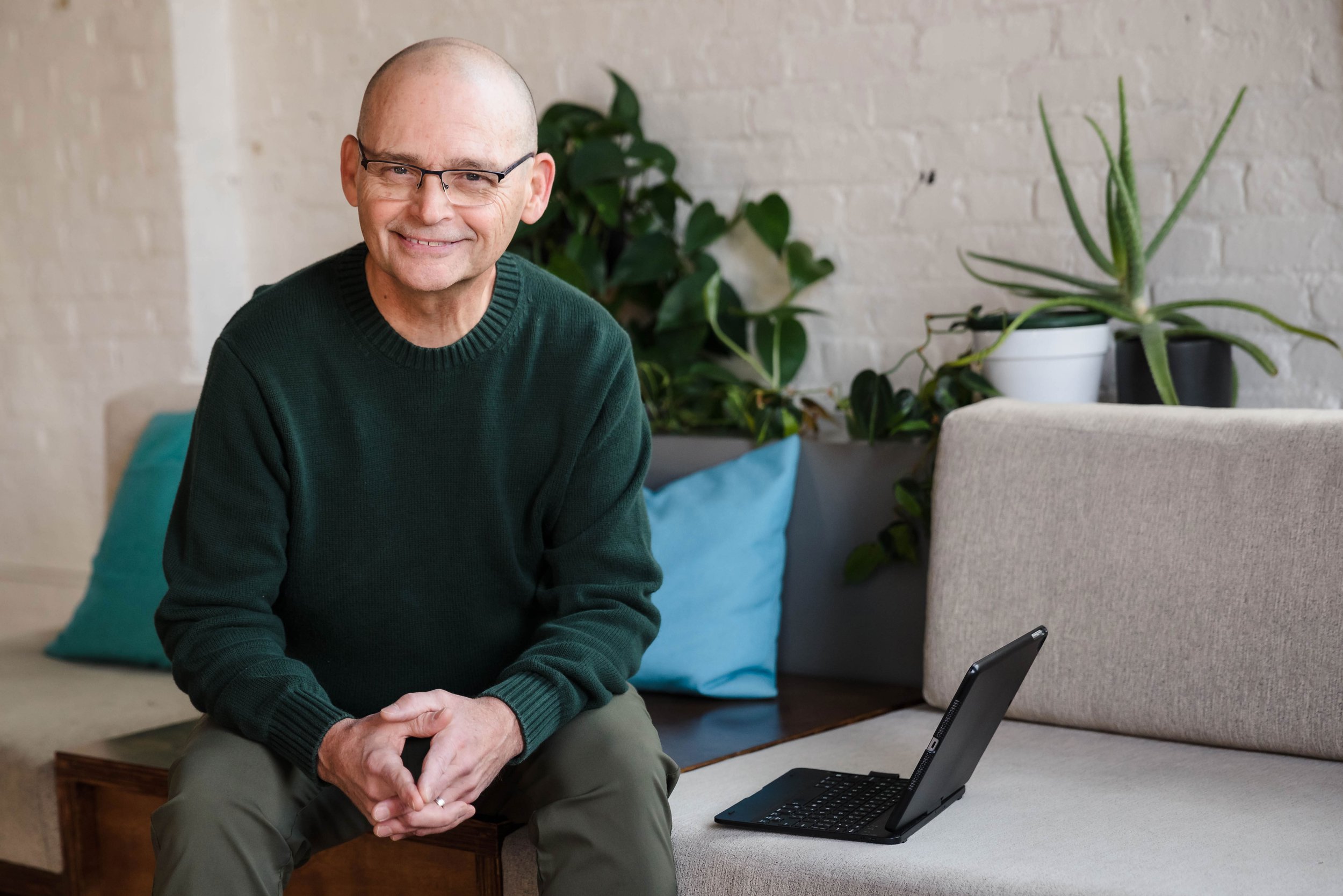Recovering
I work with a lot of people in recovery. When they first become clients, they see themselves as recovering from bad habits and addictions. Identifying as "in recovery," they have been trained to focus on abstinence or moderation in their addictive processes. But this is putting the cart before the horse. What we are recovering from is chronic disconnection, often caused by trauma. And what we are recovering is the true, authentic, Self.
The Benefits and Costs of Complaint
Through a process of honest examination, when a complaint and its hidden payoffs are exposed, we can see what we were previously blind to. What has been unconscious becomes conscious. But is this enough to end the suffering that produces the complaint?
Insights From a One-Butt Kitchen
Shortly after my wife and I moved in together, we hadn’t learned yet how to navigate our small kitchen without getting in each other's way. For example, I would grab something from the refrigerator and turn toward the counter but have to stop my momentum to avoid running into her.
Or the reverse would happen and I would get in her way. I felt an inner irritation when this happened and blamed it on the size of the kitchen, referring to it as our ‘one-butt kitchen.’
A Sermon on the Ground
In a recent coaching session, one of my clients discovered a little girl inside who often found herself suffering through hours of church sermons while daydreaming about playing outside in the sun or rain.
On a whim, I asked her to do some homework and she agreed without knowing what it would be.
“What if,” I asked, “you could write your own sermon? What would you have to say?”
What Are You Hanging On To?
What if letting go of hurt and resentment was a process similar to letting go of an old pair of shoes? Admittedly, it’s not so simple. But some of the same principles can be applied.
Settling
My “Not Your Typical Leadership Coaching” podcast host Martin Kettelhut and I meet each week to record our conversations about a variety of topics related to life coaching and leadership. When we first decided to do a podcast together, we made a long list of topics we could discuss. But what usually informs the focus for each episode are the conversations we are having that week with our coaching clients.
Intentions, Actions, and Choice
As a student, teacher, and coach, I study the influence of the unconscious. Using various models and methods including the Internal Family Systems model, I have learned how to use my conscious brain to explore the influence of parts of myself that usually operate undetected in my unconscious.
The Personal Development Continuum
Where are you on the personal development continuum? Do you have a fixed or growth mindset? What will support you best? Therapy or Coaching?
Boundary Setting
Coaching is more than just problem solving. By looking a little deeper than the presenting problem, deeper problems can be illumnated and resolved. Often boundaries are used to manage a challenge. But what if you could just resolve it once and for all?
IFS and The Work of Byron Katie
Byron Katie helped me wake up. IFS helped me heal, grow, and expand.
True Self, True Purpose, and True Path
What stands in the way of finding your true self, your true purpose, and your true path?
IFS Coaching: What is IFS and How Is It Used In Life Coaching?
I was first introduced to Internal Family Systems (IFS) by my therapist in 2016. I was having a crisis of confidence after completing a one-year coach training program and thought a few therapy sessions might help.
Guided Unblending Meditative Exercise
This meditation guides you through an unblending process, helping you notice and observe the influences of different parts within you, such as your breath, energy, thoughts, emotions, impulses, and actions. By doing so, you can build trust between your authentic Self and your parts, allowing for a more balanced response to challenging situations.
Trauma Echoes and Recovery
It’s not just childhood abue and trauma that causes life-long wounds and survival strategies. The IFS model helps heal and update the wounds so we an show up as confident and content adults.
Self-Love, The Fourth Project
There is a belief that is at the core of many failing relationships. If this belief can be changed, the relationship could be transformed.
Solving the Nice Girl Problem
Nice Guys give to get, a codependent strategey for getting needs met. Nice Girls do it too but in their own ways. Gosha Jacewicz wrote this article of her version of the Nice Girl problem.
IFS and Surrender
Michael Singer surrenders by relaxing and releasing. This article describes how to use the IFS model to surrender.
A Two-fold Path to Confidence
How is confidence derived? What does it take to have it when you need it? Once you have it, how do you keep it? As a younger man, I often noticed others who exuded confidence. I wanted what they had but had no idea how to get it. They seemed to be sure of themselves and expressed their confidence in the way they dressed, the tone and tempo of their voices, the language they used and their mastery of the storytelling.
When Nice is an Act
Recognizing and acknowledging codependent tendencies is the first step in finding our way back to authentic connection and healthy interdependence.





















